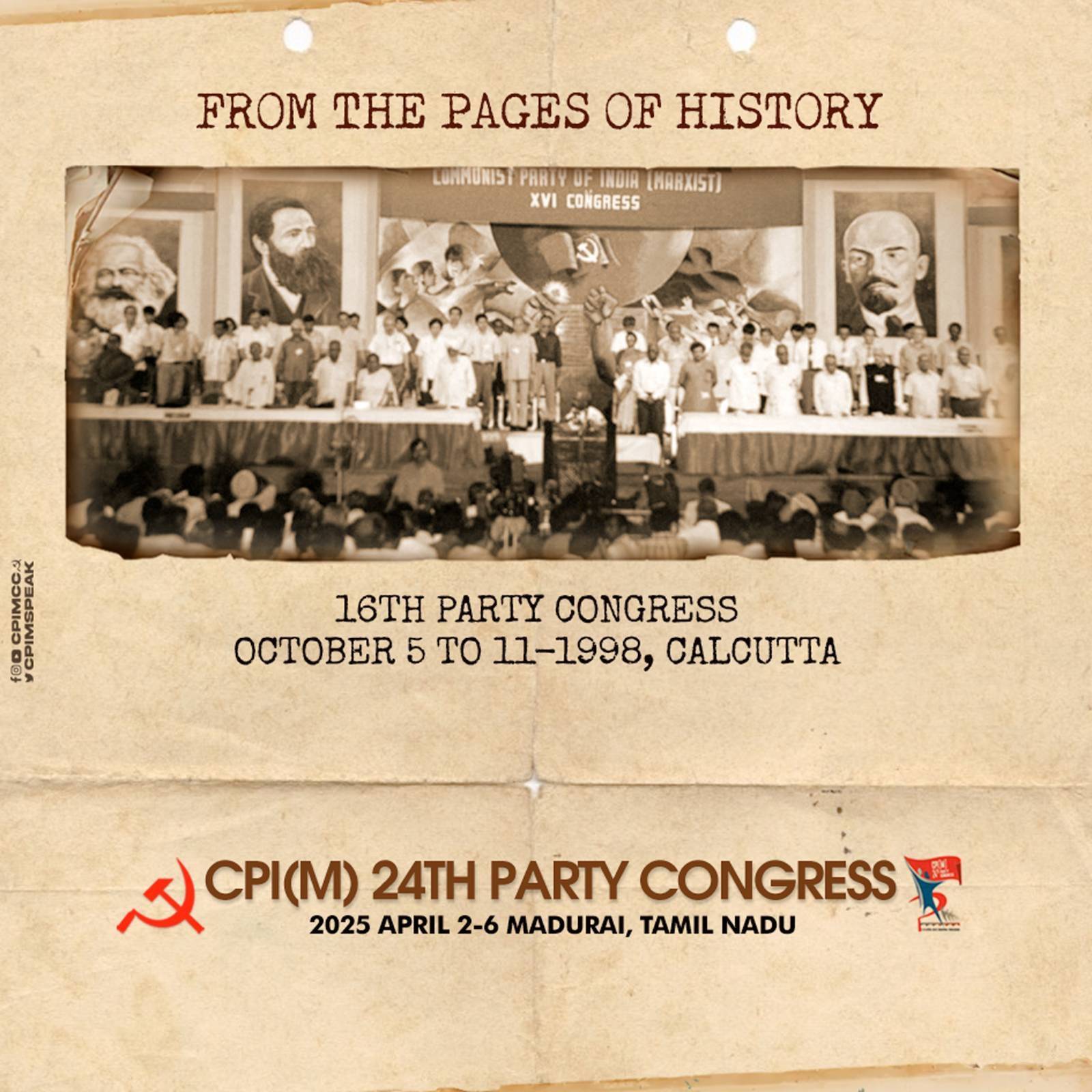16th Party Congress, was held shortly after the BJP came to power in 1998. It noted that behind the BJP stood the communal-fascist RSS, which wanted to foist upon the country a theocratic State The Party Congress took note of the RSS’ moves to take control of state institutions, and the attacks on minorities across the country, as well as the dismantling of India’s traditional policy of non-alignment and the resort of nuclear jingoism. The Party Congress analysed the political developments around the formation of the United Front government after the 1996 elections.
The CPI(M) had supported the government from the outside while deciding it should step up its independent activity to mobilise growing popular discontent into democratic channels. The Party Congress debated the question of participation in governments, particularly at the Centre, and endorsed the stand against participation in a situation where the Left lacks sufficient strength to influence government policies.
It also emphasised the need to project a third alternative to the Congress(I) and the BJP. The Congress elected a 67-member Central Committee, which elected a 13-member Polit Bureau and Comrade Harkishan Singh Surjeet as the General Secretary.
